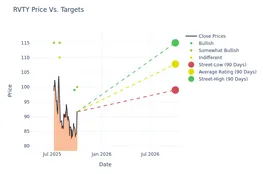Millions of Americans are facing increased costs on their monthly bills due to a significant hike in insurance fees, with insurance brands implementing substantial rate increases and warning of potential ‘sticker shock.’ This situation is particularly acute in California, where State Farm has been granted a $749 million emergency interim rate hike, impacting homeowners, condo owners, and renters. The core issue revolves around rising insurance premiums and the subsequent financial strain on policyholders.
Following a three-day hearing in April, the California Insurance Commissioner approved this request, citing the mounting financial toll of Southern California wildfires. The rate hike represents a stark change for policyholders: a 17% increase for homeowners, a 15% increase for condo owners and renters, and a substantial 38% jump for rental property policies. This translates to hundreds of additional dollars added to monthly bills, creating a significant burden for many households. The approval was based on the considerable financial impact of wildfires, necessitating a reactive approach to insurance costs.
Rex Frazier, President of the Personal Insurance Federation of California, acknowledged the hardship but argued that the increase is necessary. He stated, "People are feeling sticker shock… But the alternative is the potential (for State Farm) to be unable to continue doing business and that would be much worse."
Carmen Balber, Executive Director of Consumer Watchdog, strongly criticized the lack of transparency in the process, famously stating, "In California, we say you have to show your math."
The hike is directly linked to State Farm’s substantial payouts of over $1 billion in claims stemming from the devastating Southern California wildfires. With more claims expected in the coming months, the company claims this emergency increase is vital to stabilize the California insurance market and prevent further disruption. Despite this argument, many homeowners are expressing frustration, pointing to instances of lowball offers, delayed claims, and outright denials. Some policyholders feel that State Farm is failing to uphold its promises while simultaneously demanding higher premiums. This creates a difficult situation for consumers who are dealing with both rising costs and perceived inequities in the claims process.
Adding to the complexity, a judge noted that while the interim hike is subject to further review, it’s considered critical to prevent a collapse in coverage availability. A full hearing on the rate increase is scheduled for fall, when stakeholders will re-evaluate the justification and long-term impact. This hearing will involve a comprehensive assessment of the financial pressures facing the insurance industry and the potential consequences of these rate increases. The timeline for this full hearing is crucial, as it will determine the ultimate fate of the rate hike and its impact on policyholders.
In the interim, policyholders are struggling to adjust their household budgets, with some fearing they will be priced out of insurance altogether. The situation highlights a growing concern about access to affordable insurance coverage. Critics warn that if more insurers follow suit, the broader California market could experience a wave of similar increases, exacerbating the challenges faced by homeowners and renters. This potential domino effect is a major concern for regulators and consumer advocates alike.
California has already witnessed an exodus of insurers withdrawing from high-risk zones, further limiting coverage options. While the State Farm rate hike may offer a temporary solution to stabilize their operations, it has ignited widespread outrage among consumer advocates and policyholders. The ongoing debate underscores the complex interplay between wildfire risk, insurance regulations, and the financial stability of the insurance industry. Ultimately, finding sustainable solutions that balance affordability, risk management, and consumer protection remains a critical challenge for California and the nation.
























